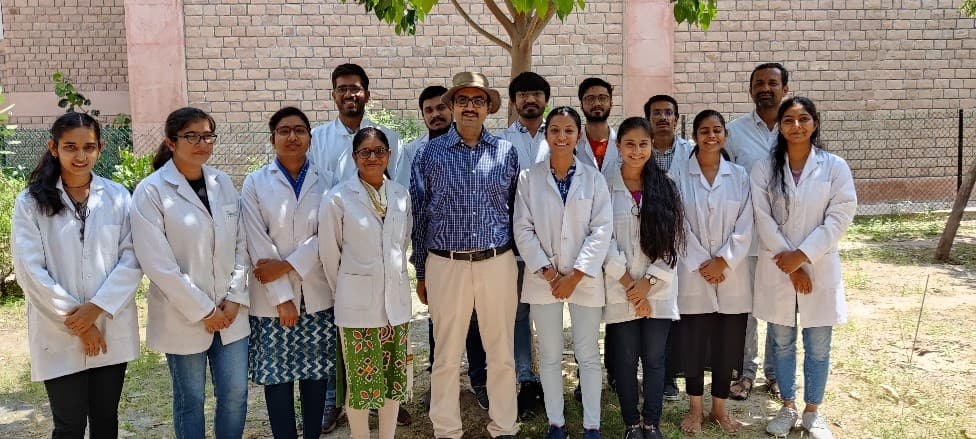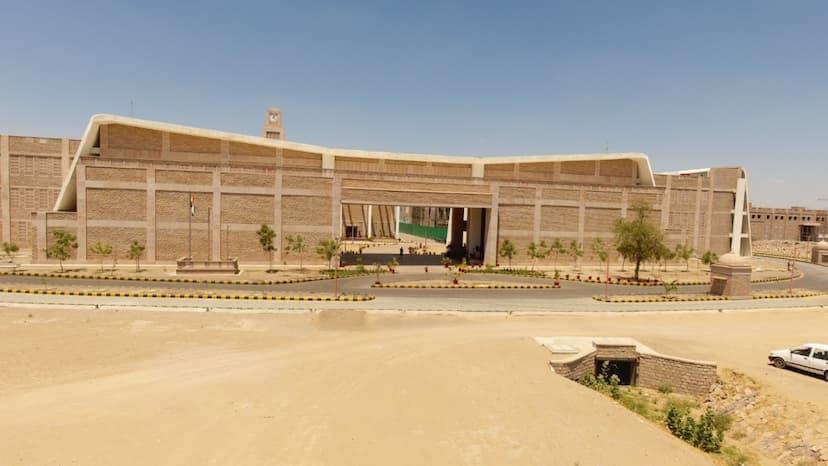IIT Jodhpur researchers develop bio-jet-fuel from waste biomass

IIT Jodhpur researchers have developed an abundantly available Iron based catalyst (Fe/Silica-Alumina) and utilized various non-edible oils and waste biomass to make the bio-jet fuel manufacturing process profitable, solving a problem that has inundated the industry for decades.
This is an ingredient for cheaper, cleaner fuels that can transform the energy sector. Dr. Rakesh K Sharma, Professor, Department of Chemistry, IIT Jodhpur, and his PhD scholar Mr. Bhagirath Saini have reinvented the way bio-jet-fuel is made from plant-based biomass.


With an estimated daily fuel demand of more than 800 million litters daily, the global aviation sector is incredibly energy-intensive and almost entirely reliant on petroleum-based fuels, say IIT Jodhpur researchers.
Unlike other energy sectors, such as ground transportation or resiIIT Jodhpur researchers could provide a competitive alternative to conventional petroleum fuels and have the potential to play a big role in greenhouse gas emissions reductions.
The research by IIT Jodhpur researchers was featured in the cover-page of Sustainable Energy & Fuels journal (https://doi.org/10.1039/D3SE00144J) published by the Royal Society of Chemistry, London.dential and commercial buildings, the aviation industry can’t be easily shifted to renewable energy sources using existing technologies, say IIT Jodhpur researchers.

The present study has great significance for developing aviation fuel under relatively mild reaction conditions, i.e., low H2 pressure and high reusability (up to 10 test cycles), using the earth-abundant Fe/SiO2–Al2O3 catalyst.
The catalyst homologous of nature clay that has been successful story from Prof. Sharma’s research group. The catalyst maintains excellent reusability up to 10 cycles (but works well for >50 cycles) towards bio-jet fuel.

The results are promising, especially considering the catalyst’s high acidity and unique textural properties under relatively mild process conditions, such as low H2 pressure under solvent-free conditions, say IIT Jodhpur researchers.
The work is being supported by Department of Biotechnology, DBT PAN-IIT Center for Bioenergy.
Significance of the work of IIT Jodhpur researchers
Speaking about the significance of the research, Dr. Rakesh K Sharma, Professor, Department of Chemistry, IIT Jodhpur, said, “What is really impressive about our work is the unprecedented bio jet fuel selectivity from biomass using earth abundant reusable heterogeneous iron catalyst under mild conditions. The process shows not only increased efficiency but also decreased emissions of greenhouse gases in airline sector.


Further research can focus on process optimization to enhance catalytic activity, selectivity, and conversion efficiency, considering factors such as temperature, pressure, and reaction time, says IIT Jodhpur researchers.

IIT Jodhpur functions from its sprawling residential Permanent Campus of 852 acres on National Highway 62, North-Northwest of Jodhpur towards Nagaur. This campus is meticulously planned and envisioned to stand as a symbol of academics. A large parcel of the Permanent Campus (of about 182 acres) is set aside for the development of a Technology Park to strengthen institute-industry interactions.
The institute is committed to a multidisciplinary approach of technology development. IIT Jodhpur, with its excellent track record of designing multi-disciplinary and transdisciplinary programs, has initiated the formation of Transdisciplinary Centres of Excellence.
S Vishnu Sharmaa now works with collegechalo.com in the news team. His work involves writing articles related to the education sector in India with a keen focus on higher education issues. Journalism has always been a passion for him. He has more than 10 years of enriching experience with various media organizations like Eenadu, Webdunia, News Today, Infodea. He also has a strong interest in writing about defence and railway related issues.






